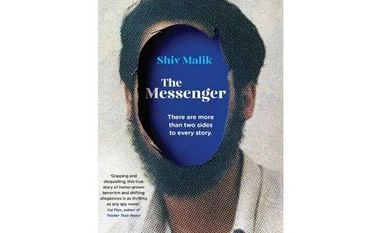In the book under review, Shiv Malik, a corporate communications professional and former investigative journalist, recounts the unnerving tale of being conned by a man who claimed to be an Islamist sympathiser with links to terror organisations.
After the 7/7 bombings in London, the British media was keen to probe home-grown terror emanating from Muslims born and brought up in Britain turning to Islamist ideology. Malik, who has worked for a number of British media outlets over the years, was keen to interview Hassan Butt, an Al Qaeda-affiliated radical, who as early as 2002 had claimed that he had recruited British volunteers to fight for the Taliban.
The book brings out the story of their association. In their first meeting, Mr Butt claimed to have met Mohammad Sidique Khan, the leader of the group that planned and executed the July 2005 bombings. Mr Malik visited Mr Butt’s house in Manchester, a spartan residence that seemed to agree with the strict Islamist doctrine that he espoused.
The journalist-source relationship changed into something less formal as the meetings progressed. Mr Malik learnt of Butt’s family, his strained relationship with his father, and the constant need for financial security. Since both men are South Asian, there were cultural similarities as well.
Six months into their association, Mr Malik received an email from Mr Butt saying that he wished to renounce Islamist ideology. He said that he had developed differences with other ideologues and that he had stopped receiving funds from them. In response, Mr Malik floated to Mr Butt the idea of writing a book that would narrate his disenchantment with Islamism. He agreed.
The turning point in the relationship came when news of the book’s writing spread in the media and Mr Butt was attacked by an unidentified assailant who, he claimed, belonged to “the network”, that is, Al Qaeda. Mr Malik became increasingly protective of Mr Butt, to the extent that when the police questioned him about the book and his association with Mr Butt, he refused to reveal anything and even went to court to protect his source.
Even as Mr Malik accommodated Mr Butt’s increasingly wayward demands, the rest of the story is a cautionary tale of how he felt deeper into the vortex of a fraud that ultimately unravelled in 2008 when the British anti-terror police arrested Mr Butt. On questioning, Mr Butt revealed that he had never had links with Al Qaeda or any other extremist organisation. Furthermore, he had arranged for himself to be stabbed to gain publicity and that the book with Mr Malik was his way of making money.
The question of how Mr Malik was taken in by Mr Butt’s duplicity is not an easy one to answer. Towards the book’s end, he presents evidence that Mr Butt may have been working for the MI5, Britain’s spy agency, all along. The logic for this is offered by Mr Malik thus: Mr Butt and a clutch of other British-born radicals were reared by the MI5 to make clear the threat from homegrown terror.
From here, Mr Malik situates his dilemma in the current political climate and blames his gullibility on the rise of demagoguery. He presents the world today as reflecting a dialectical schism between the innocent and the un-innocent, with the former looking the other way as the state resorts to every means possible to question and tame the latter.
This is a rather disingenuous lesson to draw from the protracted, tragic episode. One, 7/7 was indeed planned and executed by homegrown terror, one in a series of similar attacks that took place in Europe over the years that followed. Two, Mr Butt may have played Mr Malik and others and may have been prompted by MI5 to do so, but the threat of Islamic terror remains a real danger.
Finally, Mr Malik’s own interest in the book project stemmed from his desire to articulate the story of a reformed jihadi. A significant part of the book is devoted to how Mr Malik worked with Irshad Manji, the religious reformist, to rehabilitate Mr Butt. The fact that Mr Butt turned out to be a conman does not detract from the very real work being done in this regard and the need for such work to continue, regardless of Mr Malik’s views on the invidiousness of the state and its apparatus.
Last year, Mr Butt was sentenced to 13 years in prison for perpetuating a £ 1 million fraud on unsuspecting eBay customers in 2014, an anticlimactic turn of events for someone who claimed to hobnob with Al Qaeda bigwigs. Meanwhile, Mr Malik has moved on from journalism. The Messenger is an engaging and disturbing tale of intellectual credulity that has deeper roots than the book’s author would have us believe.
Unlock 30+ premium stories daily hand-picked by our editors, across devices on browser and app.
Pick your 5 favourite companies, get a daily email with all news updates on them.
Full access to our intuitive epaper - clip, save, share articles from any device; newspaper archives from 2006.
Preferential invites to Business Standard events.
Curated newsletters on markets, personal finance, policy & politics, start-ups, technology, and more.
)